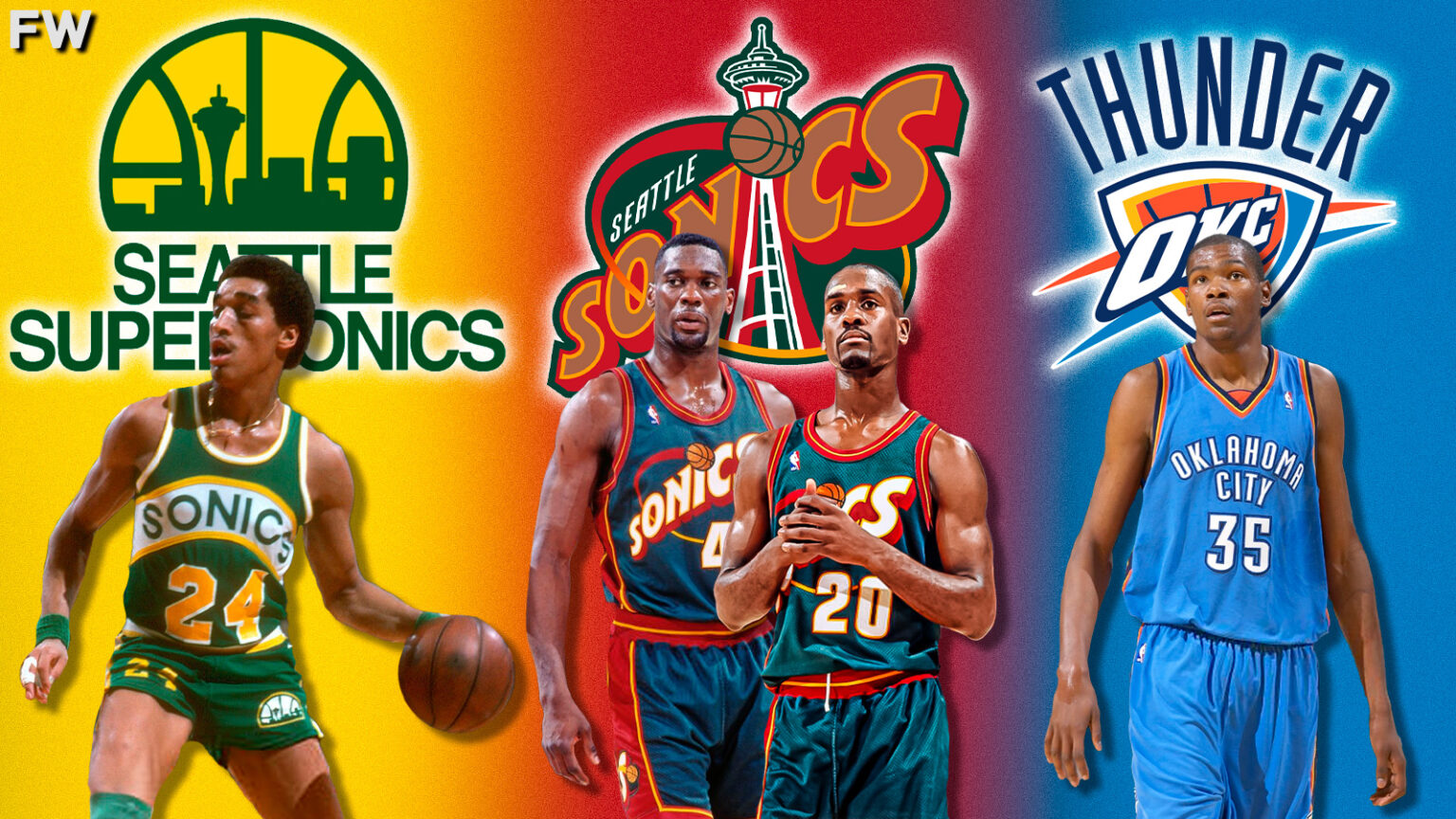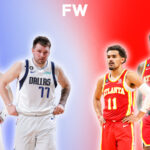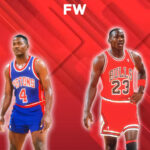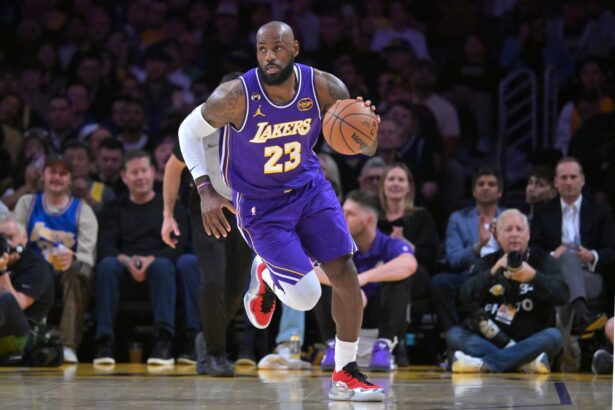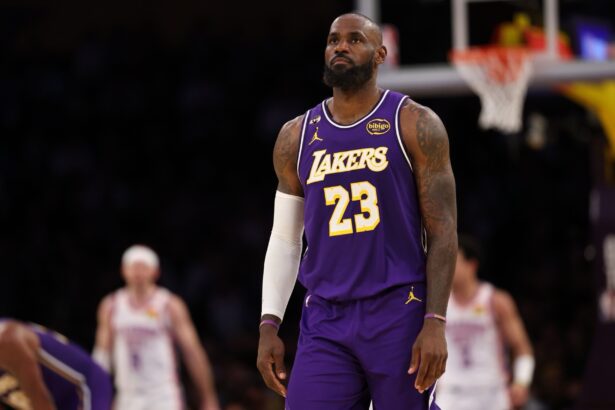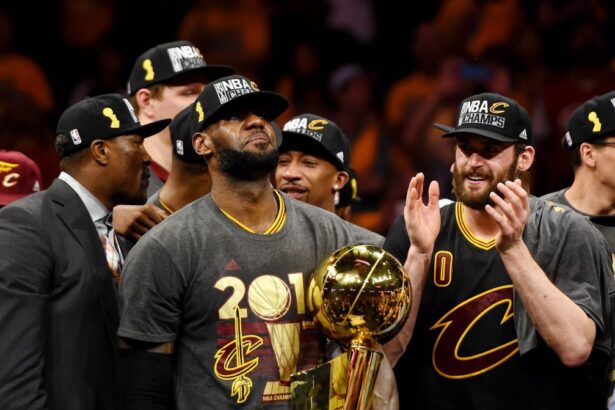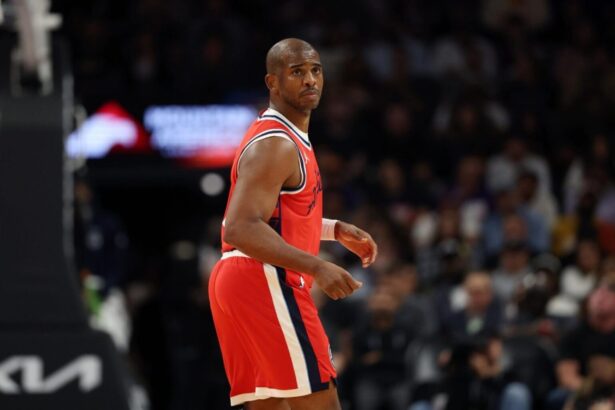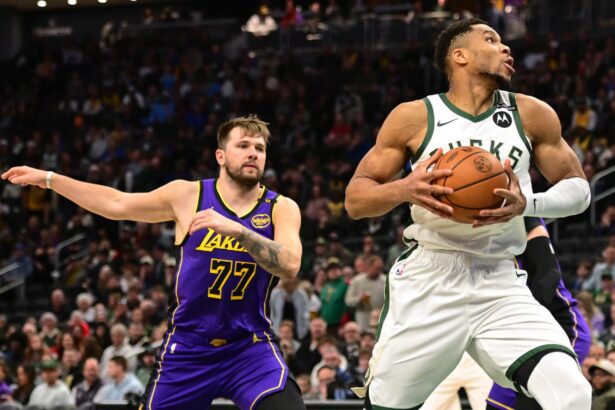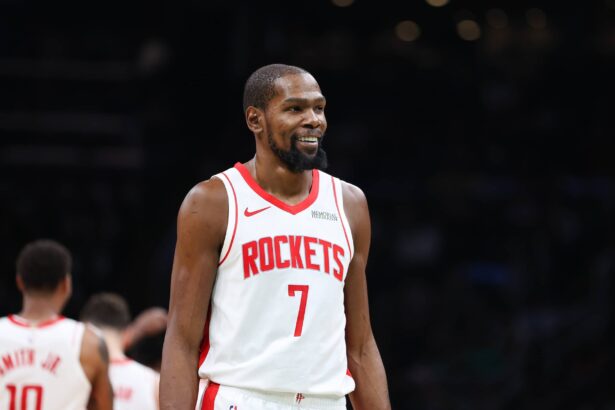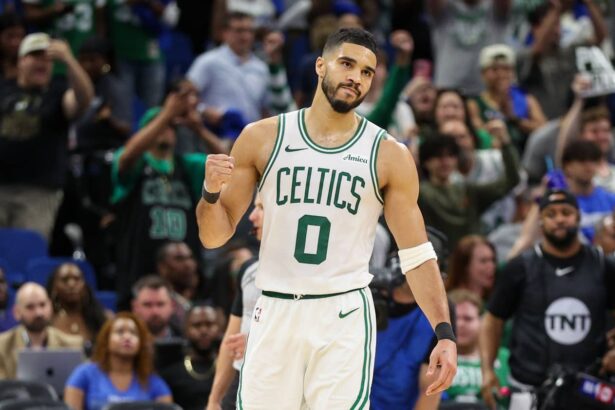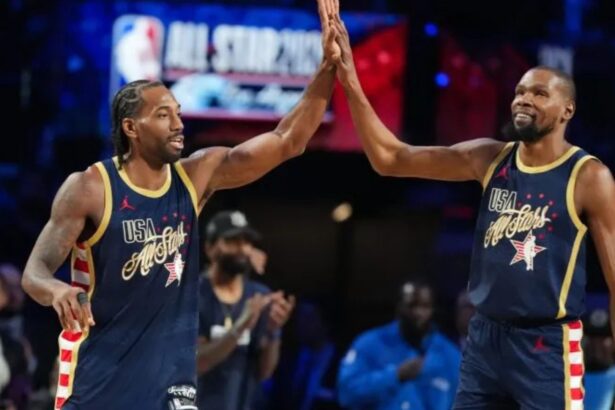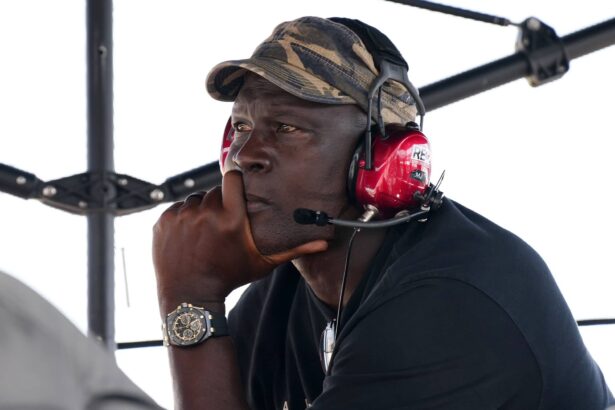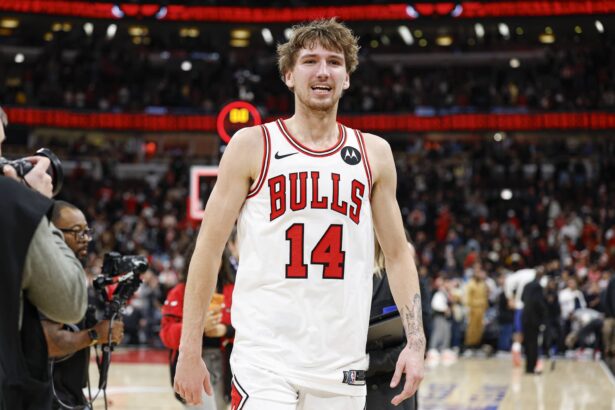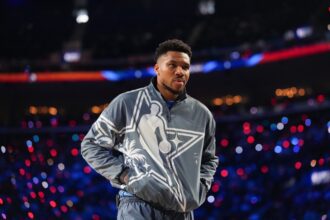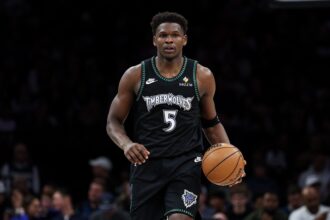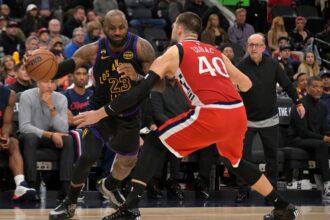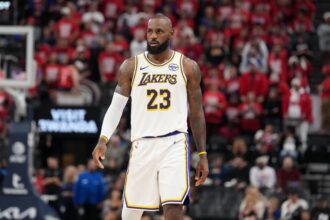Fadeaway World’s series on NBA franchises moving to different cities and the reasons behind their move is back with another addition. We last covered the Vancouver Grizzlies and the reason why they moved to Memphis.
In this article, we will take a deep dive into the Seattle SuperSonics saga and explore the events that led to their move to Oklahoma City. From the team’s history and success in Seattle to the politics and business decisions that ultimately resulted in the relocation, we will examine every aspect of this story and provide a complete understanding of what happened to one of the NBA’s most iconic teams.
The Seattle SuperSonics were once a beloved NBA team that represented the Pacific Northwest. However, in 2008, the team was abruptly moved to Oklahoma City, causing heartbreak and anger among fans.
The move was controversial and left many questions unanswered. What really happened behind the scenes? Who was responsible for the relocation? What does the future hold for basketball in Seattle?
Without further ado, this is the reason why the Seattle SuperSonics moved to Oklahoma City to become the Thunder.
The SuperSonics Take Over Seattle
Seattle’s love affair with the SuperSonics dates back to 1967, when the city was awarded an NBA franchise. Los Angeles businessmen Sam Schulman and Eugene V. Klein were the original founders of the club.
Over the years, the Sonics, as they were known, enjoyed a large and loyal fan base with some of the most passionate fans in the league. The team had its fair share of success, winning an NBA Championship in 1979 and making it to the NBA Finals again in 1996.
Star players such as Gary Payton, Shawn Kemp, and Ray Allen helped to cement the Sonics’ place in Seattle’s sporting history, and the team became an integral part of the city’s identity. However, in 2006, the team’s owner, Howard Schultz, sold the team to a group of investors led by Oklahoma City businessman Clay Bennett.
Almost immediately, rumors began to circulate that the new owners were planning to move the team to Oklahoma City, despite assurances to the contrary. What followed was a bitter legal battle between the city of Seattle and the ownership group, with fans, politicians, and community leaders all rallying to save their beloved team.
Despite their efforts, the Sonics played their last game in Seattle in 2008, officially moving to Oklahoma City and becoming the Thunder. The story of the Sonics’ move to Oklahoma City is a complex one, with many factors contributing to the decision.
From ownership disputes to political wrangling, it is a cautionary tale of what can happen when sports teams become pawns in larger economic and political games.
The Rise Of The SuperSonics In The 1970s
The Seattle SuperSonics were a team that had humble beginnings but quickly rose to become a formidable force in the NBA. With the arrival of legendary coach Lenny Wilkens in 1977, the team began its ascent to greatness.
During the 1977-78 season, the SuperSonics reached their first NBA Finals in franchise history, where they lost to the Washington Bullets in a closely contested seven-game series. The following season, the SuperSonics bounced back and achieved their greatest success in the franchise’s history.
Led by the talented trio of Gus Williams, Jack Sikma, and Dennis Johnson, the SuperSonics won the 1978-79 NBA Championship, defeating the Washington Bullets in five games. The team’s aggressive style of play, known as “Sonic Boom,” electrified the fans and cemented their place in Seattle sports history.
The SuperSonics saw modest success after their championship win but would not return to the Finals until the 1995-96 season when they were led by Gary Payton and Shawn Kemp.
The only problem was the SuperSonics ran into the 72-10 Chicago Bulls, led by Michael Jordan and Scottie Pippen. The Sonics, although they put up a good fight, lost 4-2 to the mighty Bulls.
This would be the franchise’s last trip to the NBA Finals while being in Seattle. Things would quickly go sour for the franchise that called Seattle home.
The Seattle SuperSonics Become The Oklahoma City Thunder
The Sonics faced several losing seasons after the 1995-96 season, and this lack of success on the court led to declining attendance and revenue, which in turn made it difficult for the team to invest in and retain top talent.
The team also faced a number of ownership changes during this time, which added to the instability of the organization. Barry Ackerley had owned the company since 1983, when he bought it from Sam Schulman.
It was then in 2001 when Howard Schultz, the CEO of Starbucks, led a group of 10 investors known as The Basketball Club of Seattle LLC to buy the team.
Off the court, the SuperSonics also faced challenges. The team played in the aging KeyArena, which lacked the luxury suites and other amenities that many other NBA arenas had.
The team’s ownership group pushed for a new arena to be built, but the city of Seattle was unwilling to fund it with public money.
This dispute between the team and the city led to a breakdown in negotiations and increased tensions between the two sides.
All of these factors combined to make the SuperSonics a struggling franchise in the early 2000s. The team’s lack of success, declining attendance, and inability to secure a new arena all contributed to the eventual move to Oklahoma City.
The sale of the Seattle SuperSonics to Clay Bennett, an Oklahoma City businessman, was a significant turning point in the team’s history. Bennett had been part of a group that had bought the team from Schultz in 2006.
At the time, Bennett had expressed his desire to keep the team in Seattle, but it quickly became apparent that he had other plans. In 2007, just a year after buying the team, Bennett began lobbying the NBA for permission to move the SuperSonics to Oklahoma City.
He argued that the team could not be profitable in Seattle, citing the KeyArena’s lack of revenue-generating amenities and its outdated facilities as the main reasons. Despite objections from the city and fans alike, the NBA eventually granted Bennett’s request to move the team to Oklahoma City in 2008.
After the sale, many lawsuits were thrown at Bennett and his group. The City of Seattle sued the group, stating the group must keep the team in Seattle until their lease at KeyArena expired, which was in 2010.
Ultimately, Bennett’s group settled with Seattle, giving the city $45 million for breaking their lease. If Seattle was not awarded a new team in five years, then the group would have to pay Seattle $30 million more (which they did).
Also, in the settlement, a deal was made stating the new team in Oklahoma City could not use the SuperSonics name or the team’s green and yellow colors. After this settlement with the city, Bennett’s group found themselves in one more legal battle.
The Basketball Club of Seattle LLC, led by Schultz, sued Bennett’s group for breach of contract, as Schultz’s group believed Bennett was going to keep the team in Seattle. Eventually, The Basketball Club of Seattle LLC dropped the lawsuit after they believed they couldn’t win.
After all of the legal jargon, the team relocated to Oklahoma City and became the Thunder. The Thunder had made one NBA Finals, which was in 2012 when they lost 4-1 to the LeBron James-led Miami Heat.
There is some hope for Seattle fans as the NBA is considering adding two new franchises in the near future, and Seattle is one of the cities selected (Las Vegas is the other). Even Kevin Durant, who played his rookie season in Seattle, before they moved to OKC in his second year, said Seattle deserves to have the Sonics back.
The franchise’s move was controversial and sparked protests and legal action from Seattle fans who felt betrayed by Bennett and the NBA. The sale and subsequent move of the Seattle SuperSonics to Oklahoma City remains a sore spot for many fans and the city of Seattle to this day.
We sincerely appreciate and respect you as a reader of our site. It would help us a lot if you follow us on Google News because of the latest update.
Thanks for following us. We really appreciate your support.

